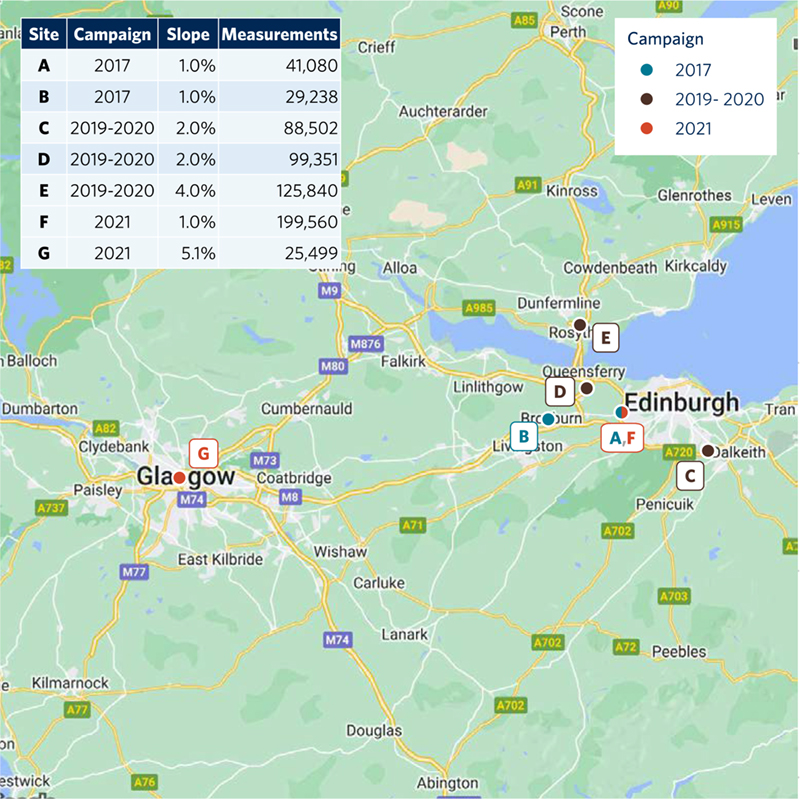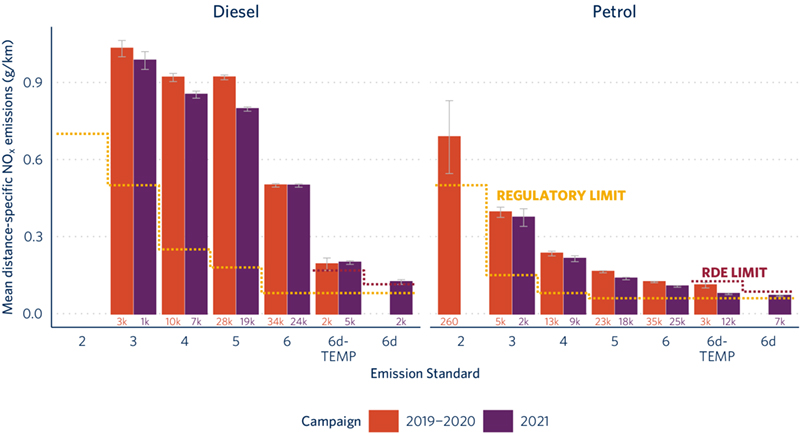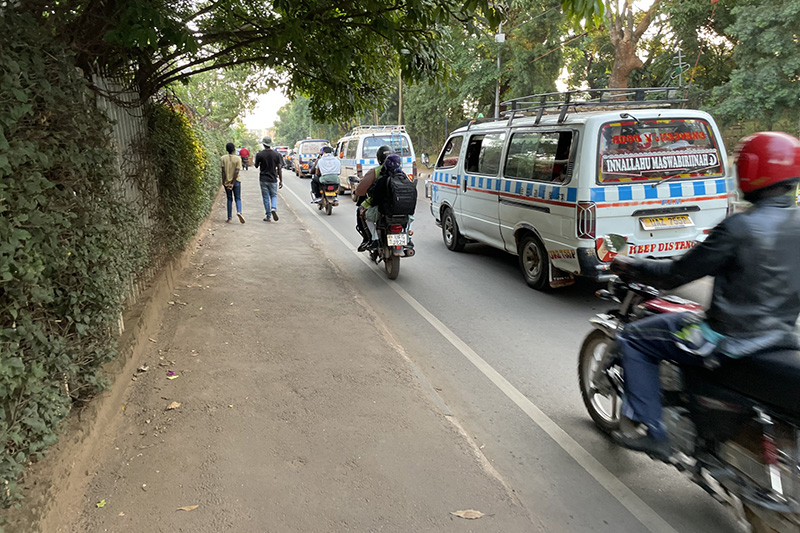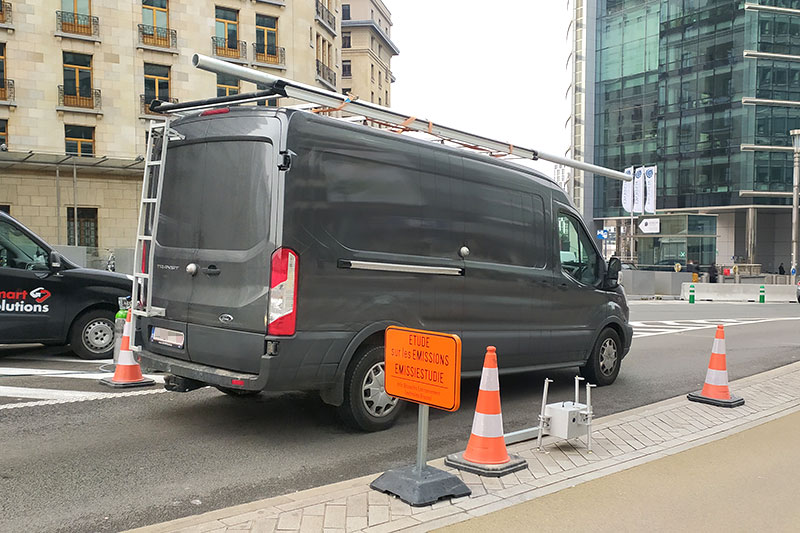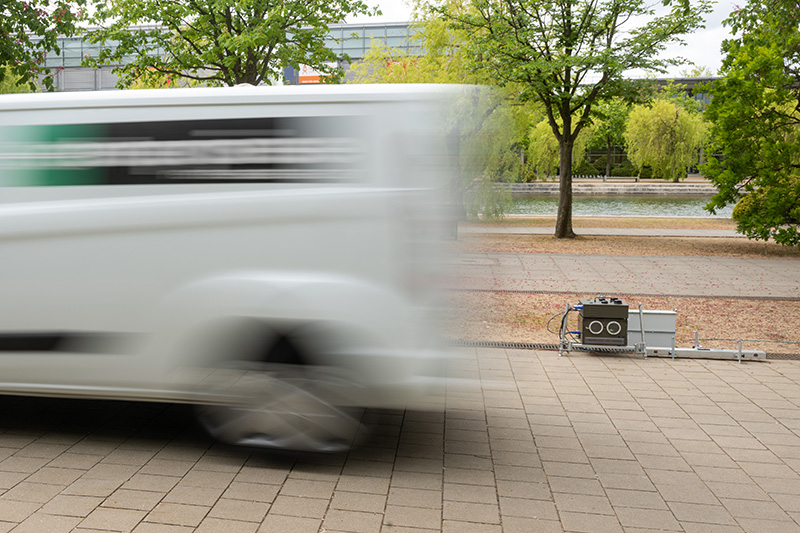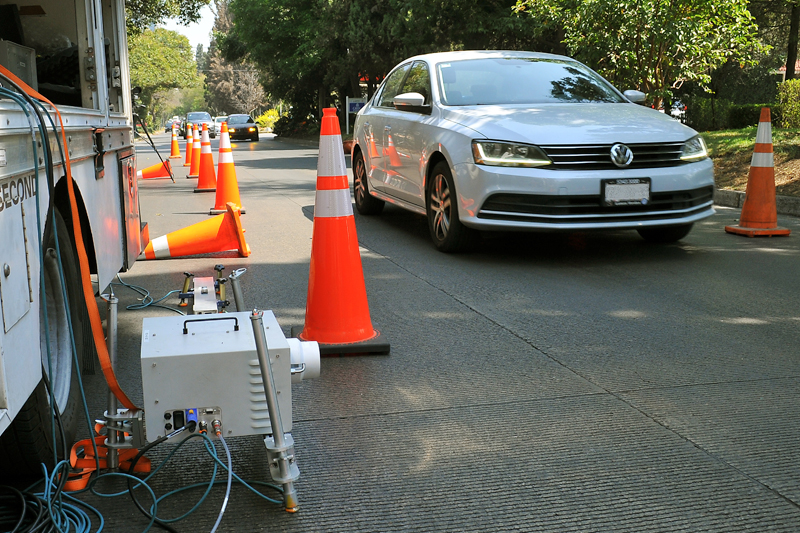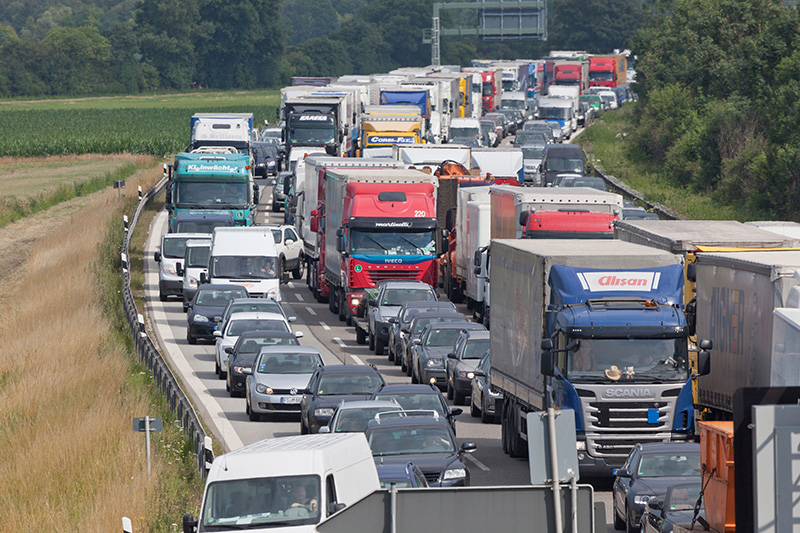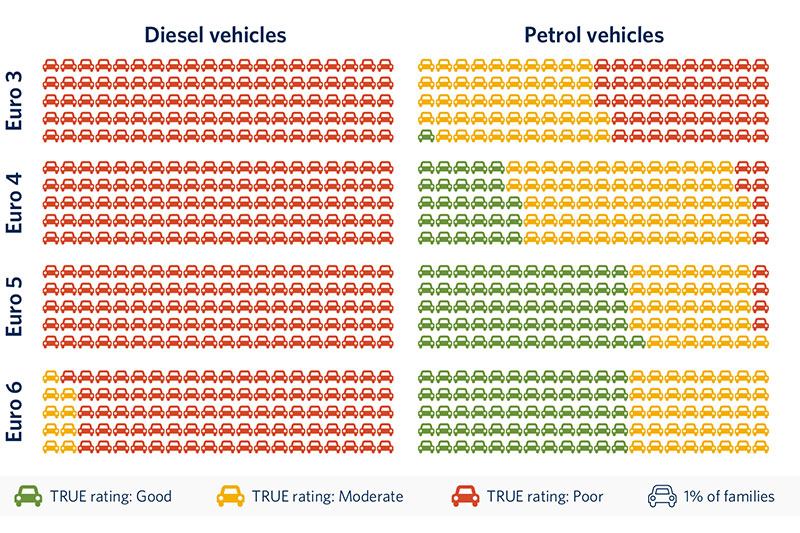Majority of post-RDE Euro 6 diesel cars still over-emitting, shows new TRUE analysis from Scottish cities
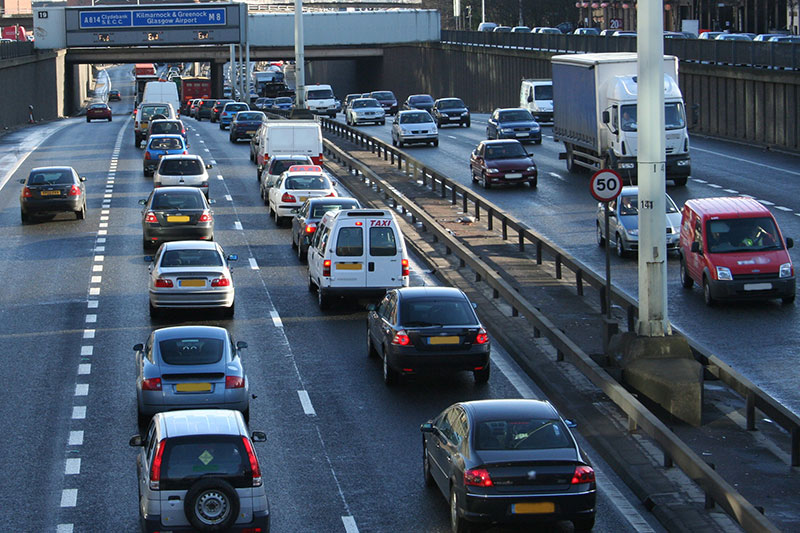
The majority of Euro 6 diesel cars manufactured after the Real Driving Emission test (post-RDE) are still over-emitting, despite significant improvements post-Dieselgate, warns a new report from TRUE Initiative.
Air pollution remains a serious issue in highly urbanized areas and poor air quality is linked to approximately 1,700 premature deaths annually across Scotland. The study, in partnership with Transport Scotland, analysed real-world nitrogen oxide (NOx), hydrocarbons (HC) and carbon monoxide (CO) vehicle emissions data, collected by remote sensing technology, in the cities of Edinburgh and Glasgow during October 2021.
The majority of vehicles tested were passenger cars and pre-RDE Euro 6 vehicles accounted for over 30% of all measurements. The analysis identified that:
- Despite improvements, post-RDE Euro 6 diesel cars showed variable NOx emissions performance across vehicle families, up to 2 and 4 times the laboratory and RDE type-approval limit respectively. Only a minority had mean real-world emissions below the RDE type-approval limit;
- Light-duty diesel vehicles Euro 5 and pre-RDE Euro 6 still emit average NOx emissions 4 to 8 times higher than their respective emission standard limits, despite manufacturer software changes following the Dieselgate scandal;
- NOx emissions of diesel vehicles significantly improved, with an average 60% reduction, following the introduction of the RDE Euro 6d-TEMP standard;
- The data provided further evidence of increased NOx and CO emissions from ageing petrol and diesel vehicles especially those with higher mileage.
“This data clearly demonstrates how much progress has been made in reducing pollutant emissions across all vehicle types, but also shows where the largest emitters lie. This report provides insightful analysis which policymakers can leverage to improve air quality not only across cities in Scotland, but in other countries as well,” says Yoann Bernard, senior researcher at the ICCT and a co-author of this report.
The report also analyses fleet segments and emission trends by vehicle category, age, and standard. Key takeaways include:
- Euro 4 to 6 taxis and private hire cars emit up to 68% more NOx than private cars of the same age;
- Long-haul commercial trucks are prone to poor emissions performance, likely because their controls systems may not be optimized for urban driving; and
- Buses certified to Euro VI-D achieved an 80% reduction in NOx emissions compared to the preceding standard.
Scotland adopted the Cleaner Air for Scotland strategy to address air pollution and its public health impact. Alongside plans to encourage a modal shift from cars to public transit and reduce overall on-road traffic, the strategy also supports local authorities in developing, implementing, and enforcing low emission zones in several major cities. Glasgow launched its low emission zone earlier this month. Transport Scotland commissioned TRUE Initiative partners Hager Environmental & Atmospheric Technologies (HEAT), the International Council on Clean Transportation (ICCT), and Element Energy to conduct the studies in Glasgow and Edinburgh, with further plans for testing and analysis of fleets in Aberdeen and Dundee.
The study's findings have important implications for policymakers in Scotland and other countries. The study's authors recommend that policymakers consider extending low emissions zones (LEZs) to exclude vehicles that predate the RDE Euro 6d-TEMP standard. Policymakers could also explore the option to identify high-emitting vehicles through mandated garage inspections, thus limiting the number of these types of vehicles on the road.
FIA Foundation Deputy Director, Sheila Watson, said: “This study's findings are a reminder of the ongoing challenge of reducing air pollution from vehicles. Despite the introduction of stricter emissions standards, the data shows there is still significant room for improvement. This report vindicates the implementation of low emission zones, shows policymakers worldwide need to take action to ensure that the latest emissions standards are actually met, and that high-emitting vehicles are taken off the road.”
“Remote sensing provides insight into real world emissions of diesel and petrol vehicles in the urban environment, detecting emissions that diverge from the type approval limit and typical levels. In improving our understanding of vehicle emissions and developing effective solutions we can support the delivery of policies to improve air quality and benefit the health of people in Scotland,” said Derek McCreadie, Senior Air Quality Emissions Adviser of Transport Scotland.
“Urban air quality is one of the major challenges faced by cities today. Element Energy was pleased to coordinate this project delivering real world air quality data to support effective policy-making in Scotland. The data clearly shows poor air quality is driven by older vehicles and policies aimed at shifting the fleet to newer vehicles, especially in high mileage use cases such as trucks and taxis, can significantly improve air quality for urban residents,” said Celine Cluzel of Element Energy.
Click here to read the 'Assessment of real-world vehicle emissions in Scotland in 2021' report
